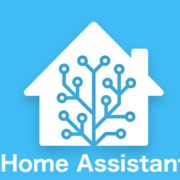What Is the Best System to Run Home Assistant On?
Home Assistant has quickly become one of the most popular open-source smart home platforms. It allows users to integrate, control, and automate devices from multiple brands under a single interface. However, the performance and stability of Home Assistant largely depend on the system and hardware platform you choose to run it on. So, what is the best system to power your Home Assistant setup?
Popular Options for Running Home Assistant
1. Raspberry Pi
- Pros: Affordable, widely available, and supported by a large community.
- Cons: Limited performance and storage; SD cards may wear out over time. Best for small setups.
2. Mini PCs (Intel NUC / AMD Small Form Factor PCs)
- Pros: High performance, expandable memory and storage, reliable for long-term use.
- Cons: Higher cost compared to single-board computers.
3. Dedicated Servers or Virtual Machines
- Pros: Ideal for advanced users; allows running multiple services alongside Home Assistant.
- Cons: Requires technical knowledge; consumes more power.
4. Custom Embedded Boards
- Pros: Designed specifically for IoT and smart home hubs; optimized for stability, power efficiency, and connectivity (e.g., RS485, Zigbee, Wi-Fi, Ethernet).
- Cons: Usually requires a hardware vendor or OEM/ODM solution.
Operating System Choices
- Home Assistant OS (HassOS)
The easiest way to get started—an image optimized to run Home Assistant directly. - Linux (Debian / Ubuntu / Buildroot)
Provides flexibility for users who want to run Home Assistant alongside other services. - Android / Embedded Linux Boards
Ideal for manufacturers and integrators building custom smart panels or hubs with touchscreen support.
The Best System: Depends on Your Use Case
- For beginners: Raspberry Pi with Home Assistant OS is the easiest entry point.
- For advanced users: Mini PCs or servers with Debian/Ubuntu provide power and scalability.
- For businesses / product integrators: A custom embedded PCBA mainboard or Android development board is the best choice, offering stability, tailored interfaces, and integration flexibility.
Portworld’s Custom Solutions for Home Assistant
At Portworld, we specialize in providing PCBA mainboards and Android development boards that are perfectly suited for running Home Assistant in smart home control panels, automation hubs, and IoT gateways. Our advantages include:
- Multiple Processor Platforms – Rockchip RK3566/RK3568, MTK, Intel, AMD, Snapdragon, Spreadtrum.
- Cross-System Support – Android, Debian, Ubuntu, Buildroot, Windows.
- IoT-Ready Interfaces – RS485, PoE, Zigbee, Wi-Fi 6E, Bluetooth 5.2, Ethernet.
- OEM/ODM Services – Hardware customization, firmware adaptation, and BSP/SDK development.
- Quality Assurance – Reliability testing, EMC validation, and long-term stability guarantee.
There is no single “best” system to run Home Assistant—the right choice depends on your needs. For hobbyists, a Raspberry Pi may be enough. For power users, a mini PC or server offers scalability. But for businesses developing smart home panels or automation hubs, Portworld’s customized PCBA and Android boards deliver the perfect balance of performance, stability, and flexibility.




